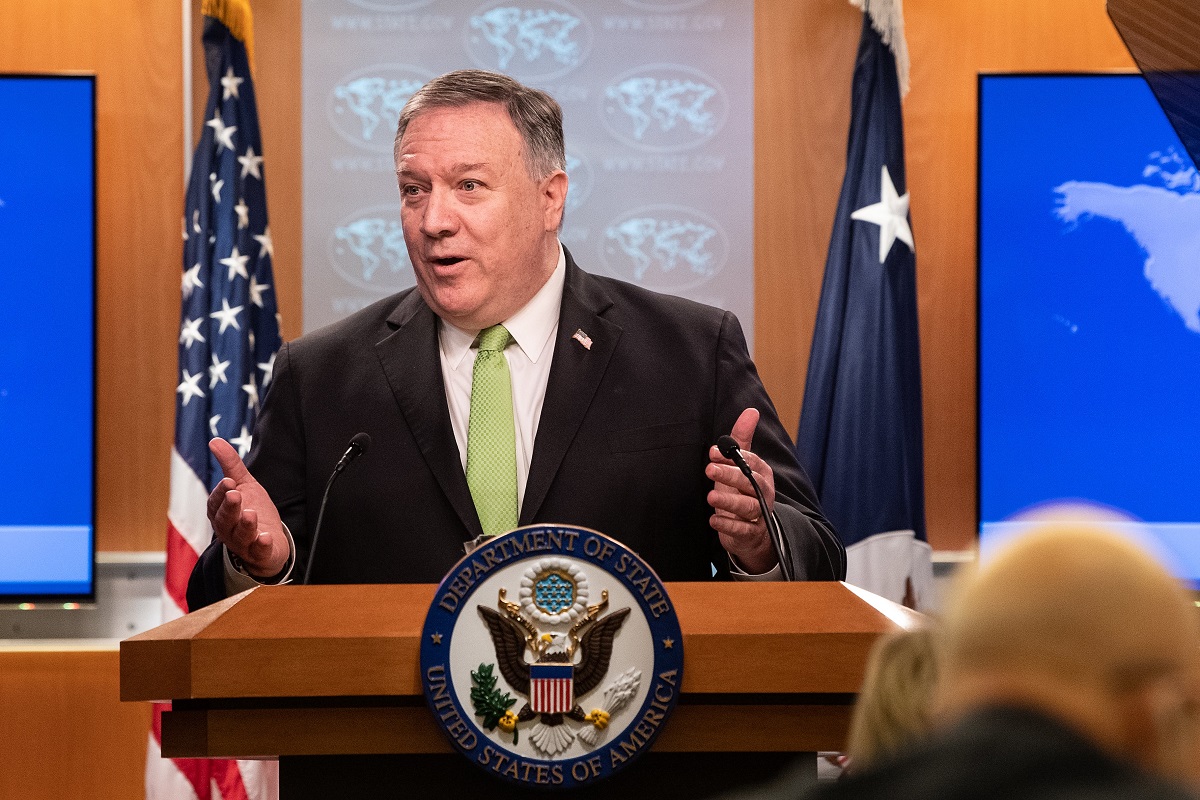US pauses aid to Ukraine, say reports
US President Donald Trump has paused all aid to Ukraine till as much time as it takes to determine President Volodymyr Zelensky's commitment to ending the war with Russia,
The proposal, which has been condemned by the United States and Hong Kong pro-democracy figures as an assault on the city’s freedoms, was tabled on the opening day of the week-long National People’s Congress.

US Secretary of State Mike Pompeo speaks the press at the State Department in Washington, DC (Photo: AFP)
US Secretary of State Mike Pompeo on Wednesday described China’s announcement to tighten its control over Hong Kong as unilateral, arbitrary and disastrous, saying the former British colony no longer qualifies to be considered as autonomous under mainland China.
On Friday, China proposed a national security law for Hong Kong in response to last year’s violent pro-democracy protests that plunged the city into its deepest turmoil since it returned to Chinese rule in 1997.
Advertisement
Hong Kong, an economic powerhouse, is a Special Administrative Region (SAR) of China. It has observed a “one country, two systems” policy since Britain returned sovereignty to China on July 1, 1997, which has allowed it certain freedoms the rest of China does not have.
Advertisement
Pomepo said in a statement that Hong Kong does not continue to warrant treatment under United States laws in the same manner as US laws were applied to Hong Kong before July 1997.
The top American diplomat said that he took this decision after carefully studying developments as the State Department is required by the Hong Kong Policy Act to assess the autonomy of the territory from China.
No reasonable person can assert today that Hong Kong maintains a high degree of autonomy from China, given facts on the ground, he said.
Pompeo said Hong Kong and its dynamic, enterprising, and free people have flourished for decades as a bastion of liberty, and this decision gives his no pleasure.
The proposal, which has been condemned by the United States and Hong Kong pro-democracy figures as an assault on the city’s freedoms, was tabled on the opening day of the week-long National People’s Congress.
Last week, Pompeo had said that the proposed law, which China’s rubber-stamp legislature is expected to act on quickly, would be a “death knell for the high degree of autonomy Beijing promised for Hong Kong.”
He said that China’s continued respect for Hong Kong’s democratic institutions and civil liberties was “key to preserving its special status under US law.”
On Friday, Taiwan’s government urged China not to lead Hong Kong into “bigger turmoil” with the proposed new national security legislation.
The law gives China the authority to curb secession, subversion, terrorism, and foreign interference, something that was observed in pro democracy protests which gripped the city last year, according to the reports.
The massive violent protests in Hong Kong started last year in June against proposals to allow extradition to mainland China, a move many feared would undermine the city’s judicial independence and endanger dissidents.
The controversial China extradition bill was withdrawn in September 2019 but the movement has morphed into a wider campaign for greater democracy and against alleged police brutality.
(With inputs from agency)
Advertisement